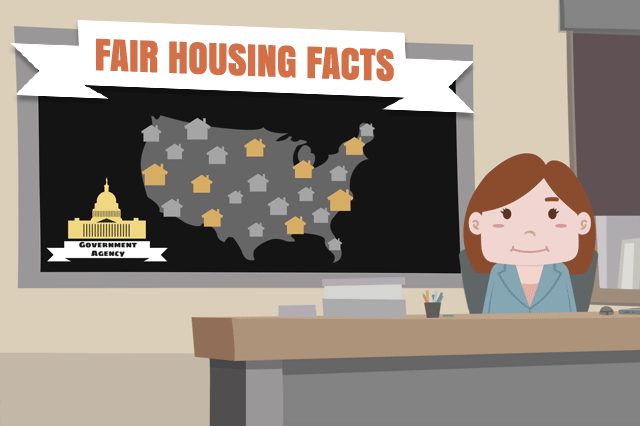The FHA Commitment to Fair Housing
February 11, 2025
This insurance reduces the risk associated with lending to borrowers who may otherwise be considered higher risk, encouraging lenders to offer more favorable terms, such as lower down payments and more flexible credit requirements.
A key element of the FHA program is its commitment to fair housing, deeply rooted in the Fair Housing Act.
The act, passed into law in 1968, prohibits housing discrimination based on race, color, religion, national origin, sex, familial status, and disability.
As a government agency, the FHA must uphold and enforce the Fair Housing Act in all its programs and operations.
The FHA's role in promoting fair housing is more than helping consumers avoid discriminatory practices. The FHA's mission includes removing barriers to housing opportunity and creating inclusive communities.
This involves educating lenders, real estate professionals, and consumers about their rights and responsibilities under the Fair Housing Act. The FHA also provides resources and support to individuals who believe they have experienced housing discrimination.
The Fair Housing Act and its Impact on FHA Lending
The Fair Housing Act is the cornerstone of fair housing law in the United States. It prohibits discrimination in selling, renting, or financing housing based on protected characteristics. The FHA plays a vital role in enforcing the Fair Housing Act and ensuring everyone has equal housing opportunities.
The following are the protected characteristics under the Fair Housing Act:
- Race: This includes discrimination based on ancestry or ethnic characteristics associated with a particular race.
- Color: This refers to discrimination based on a person's skin color.
- Religion: This protects individuals from discrimination based on their religious beliefs or practices.
- National Origin: This prohibits discrimination based on a person's birthplace, ancestry, or cultural background.
- Sex: This includes discrimination based on gender, sexual orientation, and gender identity.
- Familial Status: This protects families with children under 18 from discrimination. It also includes pregnant women and individuals seeking custody of a child.
- Disability: This prohibits discrimination against individuals with physical or mental disabilities and requires housing providers to make reasonable accommodations for them.
Lenders cannot refuse to make a loan, offer different loan terms, or deny housing opportunities based on a borrower's race, color, religion, national origin, sex, familial status, or disability. KNOW YOUR RIGHTS.

FHA Loan Articles
February 27, 2025 Buying your first home can feel overwhelming, especially when you start hearing terms like "subprime mortgages" and "FHA loans." Understanding these options is crucial for making the right decision. Subprime mortgages are designed for borrowers with less-than-perfect credit histories. This might include past issues like late payments, loan defaults, or even bankruptcy...
February 26, 2025Buying your first home can be exciting, but the mortgage process often throws a curveball of unfamiliar terms. Here are answers to common questions first-time homebuyers have about mortgage jargon and terms.
February 18, 2025Mortgages typically require mortgage insurance and homeowners insurance. They are both key parts of your home loan but they serve very different functions. Do you know the differences between the two? Find out how ready you are to begin the process of buying your new house.
February 17, 2025The federal government backs FHA home loans, which allows participating FHA lenders to offer lower down payment options and more lenient credit requirements. How much do you really know about your FHA home loan options and how they compare to other mortgage choices?
February 13, 2025For many college graduates, student loan debt is a concern. A common question is how this debt impacts the ability to buy a home. This Q&A explores the relationship between student loans and FHA loan approvals. How much do you know about how your student loan debt affects your ability to be approved for a mortgage?







